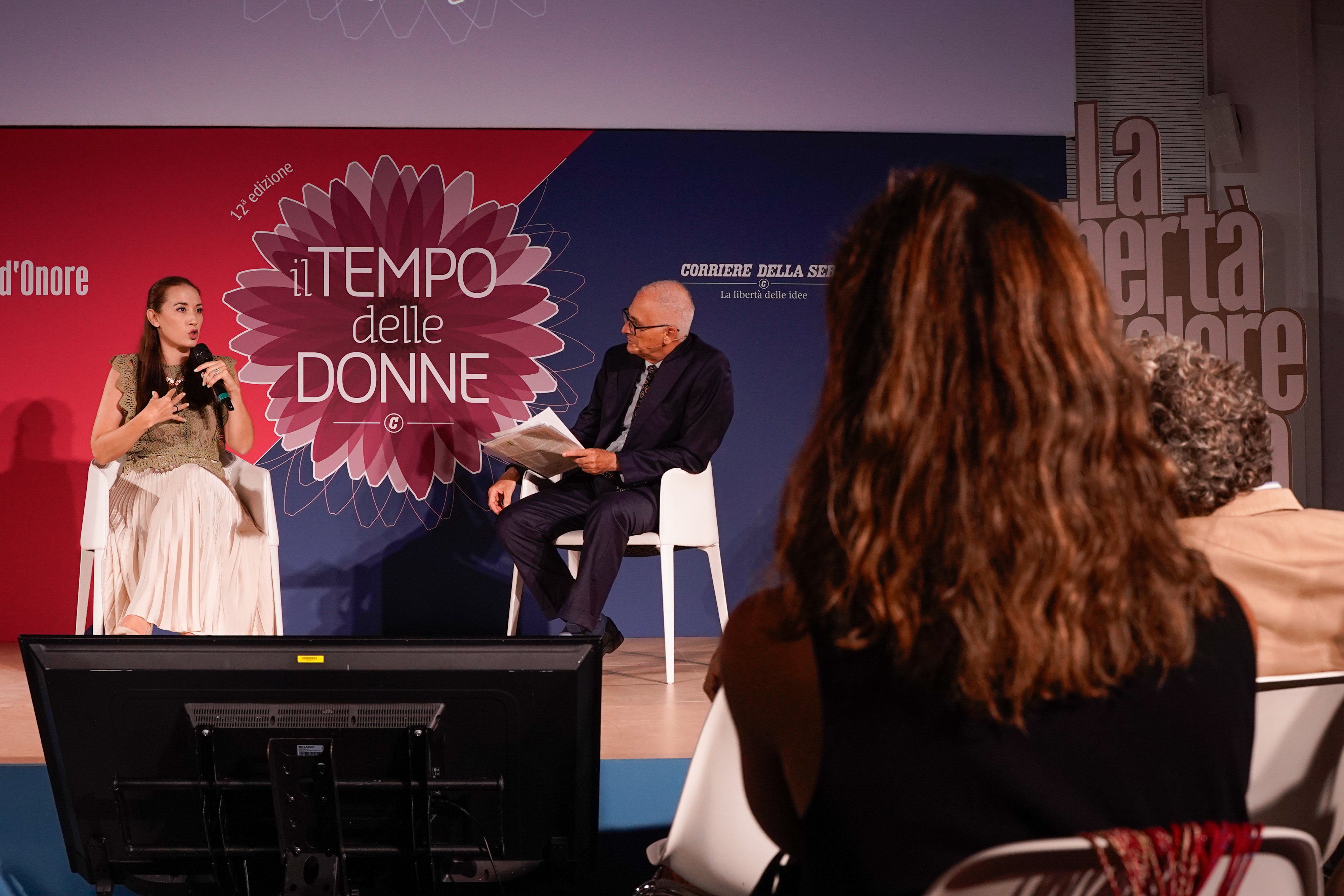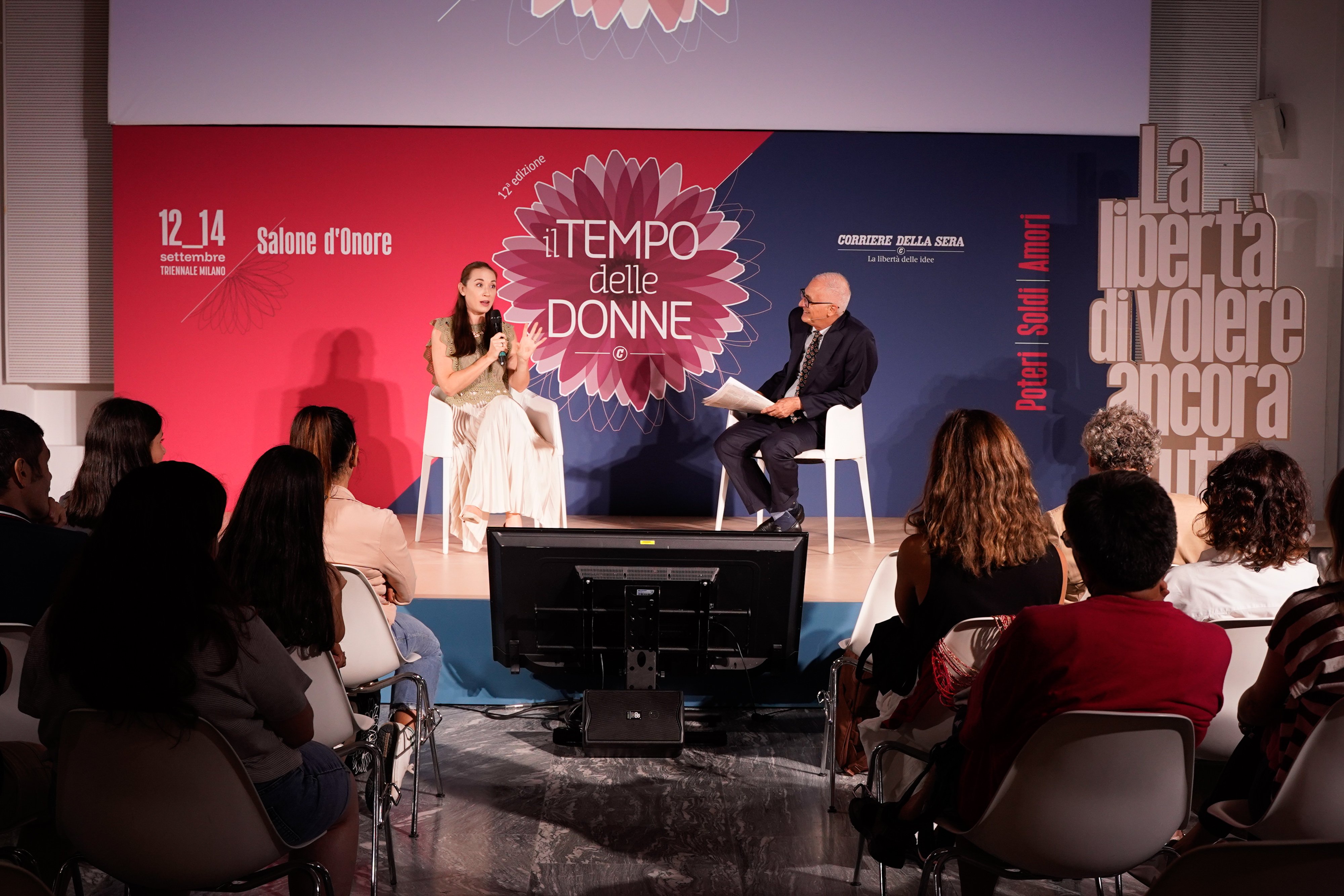At a recent event in Milan dedicated to the transformations shaping society, Gioia Ferrario, Global COO, CHRO & Managing Director of JAKALA, shared her vision for the future of work. Her message was clear: data, innovation, and social value should not be seen as ends in themselves, but as tools to create a way of working that benefits people, society, and the environment.
The gathering, part of Il Tempo delle Donne (“The Time of Women”), an annual festival organized by Italy’s leading daily newspaper Corriere della Sera, featured over 100 events and more than 300 speakers across three days. Discussions ranged from power and money to work, relationships, and technology, offering a platform for business leaders, cultural figures, and policymakers to explore how these forces are reshaping our collective future.
In conversation with Daniele Manca, Deputy Editor of Corriere della Sera, Gioia Ferrario brought JAKALA’s perspective on data, artificial intelligence, and sustainability, while always keeping people at the center. The session also featured Lara Pelagotti, psychologist and psychotherapist, and the writer Felicia Kingsley.
AI as an ally for people and organizations
Gioia underlined how AI can serve as a powerful ally not only for businesses, but also for individuals seeking new professional opportunities. At JAKALA, algorithms help candidates identify roles that best fit their skills and aspirations, while also simplifying the daily work of the company’s 3,500 employees. By automating low-value administrative tasks, AI frees up time and energy for what matters most: growth, innovation, and human relationships.
Bias, responsibility, and the human factor
The conversation also touched on the risks of bias in AI systems: every algorithm inevitably reflects the data it is trained on. According to Gioia, this makes one point essential, as ultimate responsibility cannot be delegated to machines. Recognizing talent, interpreting nuances, embracing diversity, and guiding teams remain fundamentally human tasks, with technology playing a supporting role rather than a replacement.
Sustainability as a driver of awareness and change
Gioia also emphasized JAKALA’s commitment to sustainability, seen not as a statement of intent but as daily practice. This ranges from producing a transparent sustainability report, to policies with tangible impact: a fully electric corporate car fleet, welfare programs designed to reduce environmental impact and improve quality of life, and projects that link business growth with broader societal benefits.
An integrated vision for the future
As Gioia explained:
I firmly believe that data, technology, and sustainability are not separate domains, but parts of a single design. The real challenge is learning how to weave them together—not only to improve processes or numbers, but to imagine a future of work that is fairer, more inclusive, and more sustainable. A future where people remain at the center, and where the value we create together can generate a positive impact well beyond companies, throughout society.


.jpg?width=4000&height=2667&name=_GIO6779%20(1).jpg)

.jpg?width=4000&height=2667&name=_GIO6780%20(1).jpg)




